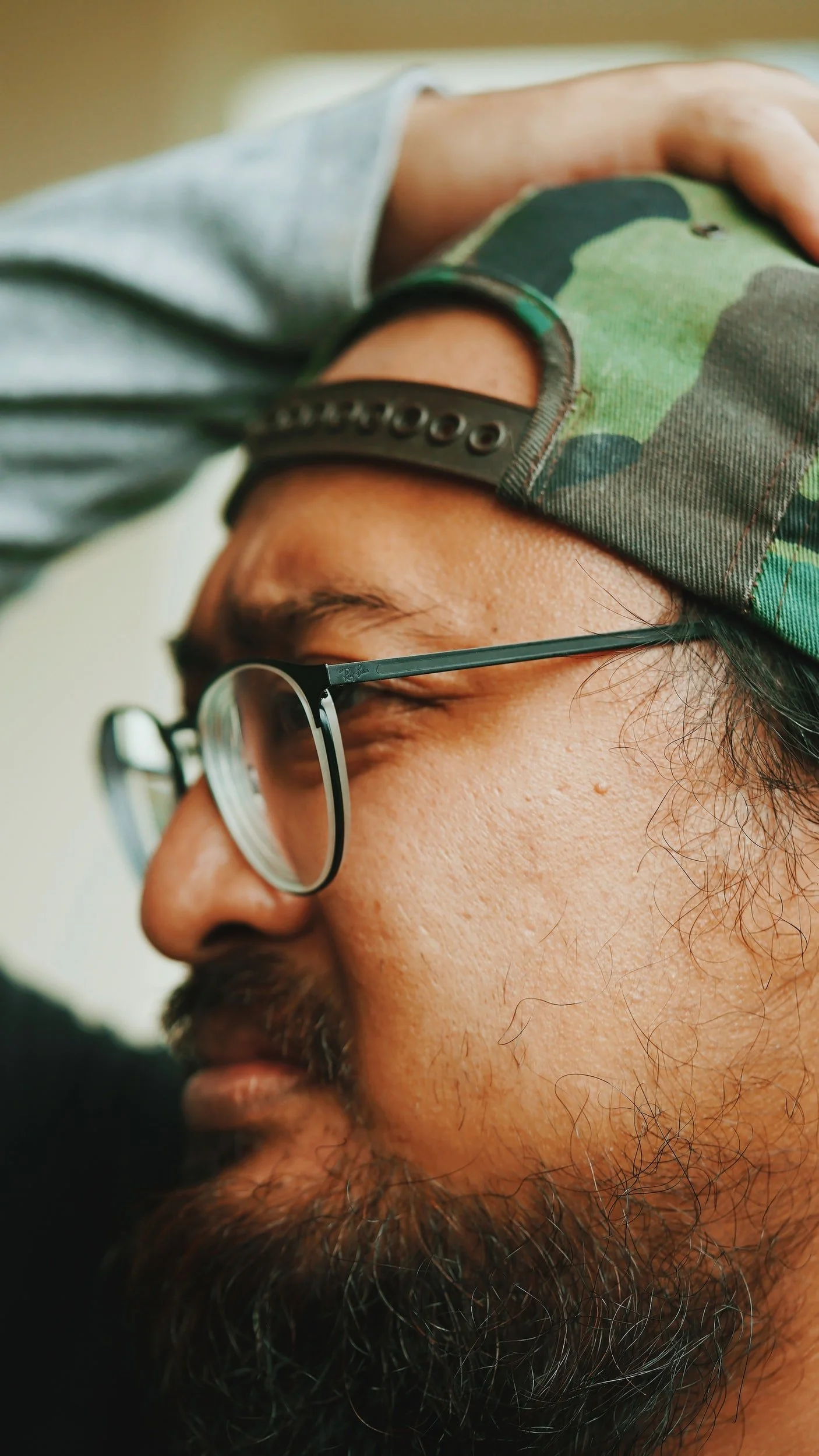Stress can lead to significant hair loss
According to the American Institute of Stress, more than half of all US adults experience stress every day. Unfortunately, this amount of stress can lead to significant hair loss.
Stress and hair loss are closely related. After all, when the body is in survival mode, it doesn't have time to focus on growing hair. That said, stress isn't the only thing that can contribute to hair loss.
This guide will help you understand the relationship between stress and balding. We'll also discuss hair loss prevention and treatment options. Let's begin!
Are Stress and Hair Loss Related?
Stress and hair loss tend to feed into each other, forming a vicious cycle. For example, if you're feeling stressed out because of work, personal relationships, or life changes, you can begin to lose your hair.
And when you begin to lose massive amounts of hair, you may start to feel stress and anxiety about it. Consequently, initial stress can lead to hair loss, which can cause you to feel even more stress!
Fortunately, there is a way to break out of this cycle. To do so, you'll want to take a little time to consider how stress contributes to hair loss. For that reason, let's take a moment to explore the human stress response.
Understanding the Stress Response
The human stress response (also called the fight-or-flight response) is a helpful tool that's helped our ancient ancestors survive dangerous situations. It's a physiological response to threats or stressors.
When you encounter something that stresses you out, your body will begin to produce various hormones and chemicals designed to help you escape (flight) or overcome (fight) that stress.
Adrenaline and cortisol are two significant substances involved in the stress response.
Adrenaline (also called epinephrine) causes your heart to race, increases your energy reserves, and raises your blood pressure. Cortisol causes your body to release glucose (sugars).
In small bursts, this response is beneficial. But when it's triggered constantly throughout the day, it can lead to weight gain, high blood pressure, and significant hair loss.
That's because the fight-or-flight response causes your body to put several biological mechanisms on the backburner. One of these is hair growth.
As such, stress might not make your hair fall out, but it can stop it from growing. Unfortunately, high stress levels aren't the only potential cause of hair loss.
Other Hair Loss Causes
While high levels of stress and anxiety can cause hair loss, they're not the only potential culprits to consider. Malnutrition, genetics, hormonal changes, and illness can also cause your hair to fall out.
Overall, some of the most common causes of hair loss include:
Genetics
Hormonal changes
Illness
Nutritional deficiencies
Excess scalp pressure
Certain medications
Besides genetics, many hair loss causes can be entirely or partially prevented. As such, the decisions you make today could be the first step toward enjoying a healthier head of hair!
Hair Loss Prevention
Though genetic hair loss isn't preventable, other forms of hair loss often are. For example, if you're losing hair because your life is stressful, you can take steps to lower your daily stress level and grow healthier hair.
All in all, some of the best ways to prevent hair loss include:
Reducing stress
Hormone replacement therapy
Healthy lifestyle choices
Reducing scalp pressure
It's crucial to consider these prevention methods, especially if you're feeling uncomfortable about hair loss.
Reducing Stress
As we've noted, anxiety and hair loss are intrinsically related. Consequently, one of the best
ways to encourage hair growth is to reduce the amount of stress you experience.
While this might feel like an impossible challenge, primarily if you work a stressful job or are going through significant life changes, there are several ways to let go of stress and embrace a calmer body and mind.
Healthy lifestyle changes are the first thing you'll want to try. This means eating healthy meals, getting plenty of sleep, and exercising regularly. That said, these choices may not be enough to keep you stress-free.
For that reason, you may also want to consider therapy. Seeking counseling for your stress is a fantastic way to learn coping mechanisms that can help you enjoy a less stressful life.
Hormone Replacement Therapy
Our hormone levels (testosterone and estrogen) can decline as we age. As a result, many people experience hair loss during their late adulthood.
Hormone replacement therapy can slow or minimize this hair loss. If you're in your 40s, 50s, or 60s, you might want to consider this treatment option.
Healthy Lifestyle Choices
One of the best ways to prevent significant hair loss is to make healthy lifestyle choices. Remember, drinking plenty of water, eating nutrient-rich meals, and getting plenty of sleep make for a healthy body and mind.
Reducing Scalp Pressure
Do you wear your hair in a tight bun or ponytail? If so, you may be putting too much pressure on your hair follicles, causing significant damage that reduces hair growth. Relieving this pressure can help reduce hair loss.
Hair Loss Treatments to Consider
If you've already lost a significant amount of hair or you're experiencing genetic hair loss (like male pattern baldness), you'll want to consider hair loss treatments.
Hair loss treatments vary significantly, with some being purely topical (like scalp dyes) and others requiring surgery. The best option for you depends on your preferences, budget, and comfort level.
Some of the most popular and effective hair loss treatments include:
Topical medications
Hair transplant surgery
Scalp micropigmentation
Topical Medications
Some topical medications can encourage hair growth. These settle into the skin, activating hair follicles to enter the growth stage. However, they may not work for everyone.
Hair Transplant Surgery
One of the most extreme hair loss solutions is hair transplant surgery. This treatment option involves removing skin from one area of your body and transplanting it to your scalp.
While the surgery itself isn't painful, post-surgery recovery and care can be significantly uncomfortable. For this reason, we recommend considering alternative treatment options before settling on hair transplant surgery.
Scalp Micropigmentation
One of the fastest, most effective, and least invasive hair loss treatment solutions are scalp micropigmentation (SMP). During this treatment, your bare skin is pigmented with dark ink to create the illusion of hair growth.
This option is best suited to those who are completely bald, though it can help reduce the appearance of thinning hair as well. Generally, this procedure is far less painful than hair transplant surgery.
Even better, a single SMP session can take as little as two hours and results can last for as long as six years. As such, this treatment is a long-lasting solution to noticeable hair loss.
Find SMP Treatments Today
Stress and hair loss are related in several ways. When your body begins to exhibit signs of stress, it switches into survival mode. While in this state, the body focuses less on regular maintenance and more on core functions.
As such, you may begin to lose your hair when you're stressed out, especially for longer periods. That said, stress isn't the only thing that causes hair loss. Illness, genetics, and malnutrition may also be to blame.
Are you ready to make a change? If so, contact us today and schedule a free hair loss treatment consultation!

